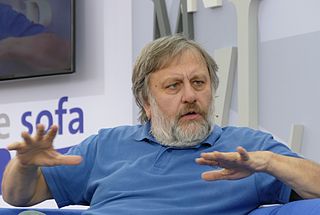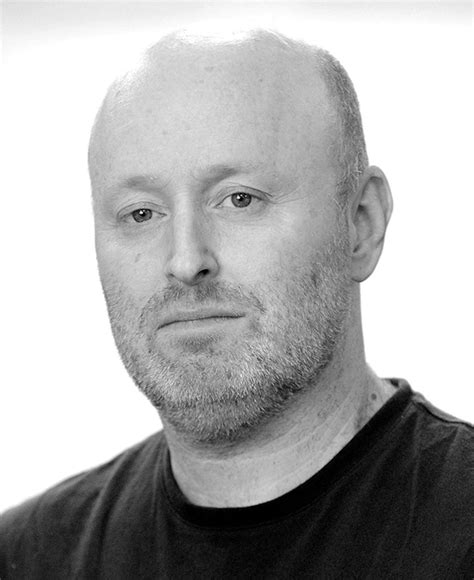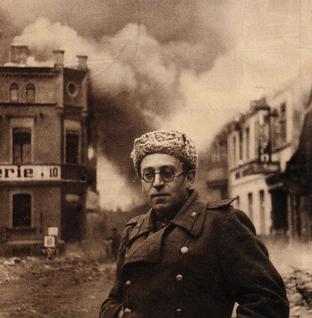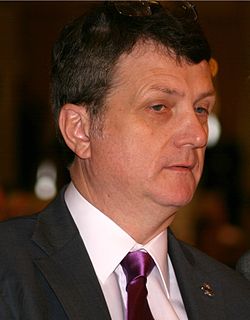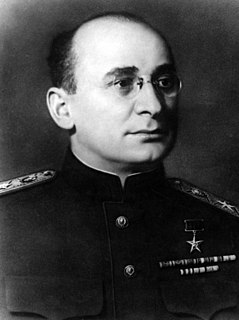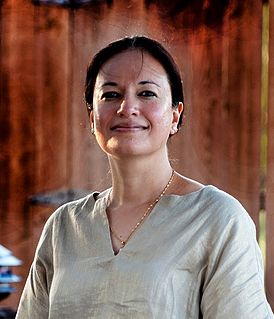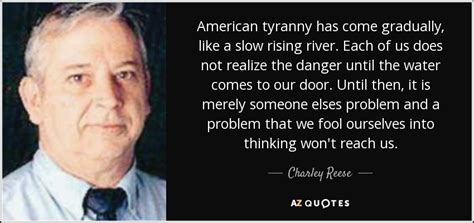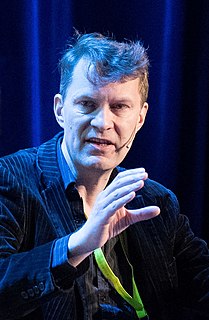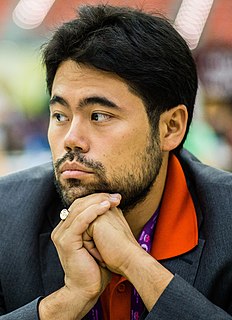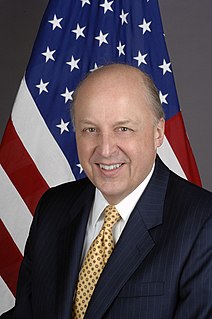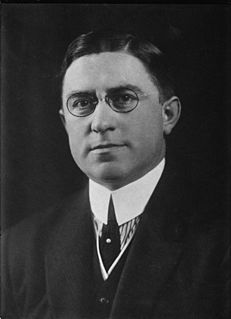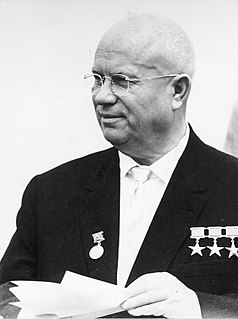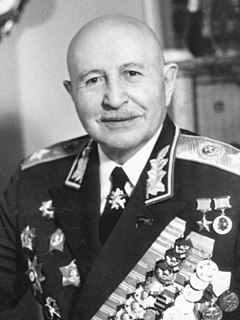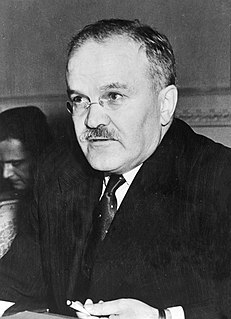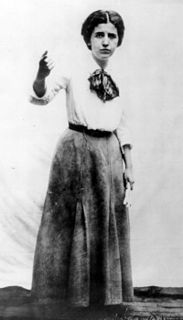Top 1085 Soviet Quotes & Sayings - Page 15
Explore popular Soviet quotes.
Last updated on April 21, 2025.
What if the Soviet intervention was a blessing in disguise? It saved the myth that if the Soviets were not to intervene, there would have been some flowering authentic democratic socialism and so on. I'm a little bit more of a pessimist there. I think that the Soviets - it's a very sad lesson - by their intervention, saved the myth.
I was given this beautiful coffee table book of Soviet architecture for my birthday. It has a lot of holiday camps, swimming pools, theatres, and buildings that were built for leisure activities. Incredible architecture in the most obscure places. It's a little bit sad, because a lot of it has been left to fall apart.
Growing up in the Soviet Union, ballroom dancing wasn't the coolest thing to do. But that probably made me tougher, because it wasn't an easy task to do ballroom dancing and not get bullied. And I never got bullied in my life, even though I changed to five secondary schools in three different countries.
With Yeltsin, the Soviet Union broke apart, the country was totally mismanaged, the constitution was not respected by the regions of Russia. The army, education and health systems collapsed. People in the West quietly applauded, dancing with and around Yeltsin. I conclude therefore that we should not pay too much attention to what the West is saying.
My late mother moved back to her parents' homeland in the 1990s when Ukraine and Russia, along with the thirteen other former Soviet republics, became independent states. Drawing on her experience as a lawyer in Canada, she served as executive officer of the Ukrainian Legal Foundation, an NGO she helped to found.
The language of these Soviet show trials... could only be understood in the Aesopian imagery of the closed Bolshevik universe of conspiracies of evil against good in which 'terrorism' simply signified 'any doubt about the policies or character of Stalin.' All his political opponents were per se assassins. More than two 'terrorists' was a 'conspiracy'.
The Russians will always find a pretext for their aggression. It was Putin who said in 2005 that the biggest geopolitical disaster of the last century was the collapse of the Soviet Union. Putin wants to bring Ukraine back into the Russian sphere of influence. That is why he tried everything in order to stop the EU-Ukraine Association Agreement.
I think during the Cold War in America at least, there was a division; there was the Soviet government and there were the oppressed people, who were not represented by this government. That was a massive oversimplification of what the true situation was there. There were certainly many people who were completely and fully alienated from the government.
The divine impeccability of the immortal [Soviet] State turned out not only to have suppressed individual human beings but also to have defended them, to have comforted them in their weakness, to have justified their insignificance. The State had taken on its own shoulders the entire weight of responsibility; it had liberated people from the chimera of conscience.
For many years prior to the 1990s, European integration was embraced and supported by a large majority of citizens. A united Europe, bound by commonly-held democratic values, was perceived as an essential and effective buffer against the Soviet empire. A united Europe made a repeat of the First and Second World Wars almost unthinkable.
When the Soviet Union fell, optimistic scholars believed the world had shifted inexorably in the direction of free markets and liberal democracy. Instead, the West gradually embraced bigger government and weaker social bonds, creating a fragmented society in which the only thing we all belong to, as President Barack Obama puts it, is the state.
Let's learn from history and take a look at other infamous socialist central-planning experiments like China's Great Leap Forward or the Soviet Union's Five-Year Plan. Like those two disasters, the Green New Deal would cripple our country and sacrifice Americans on the altar of environmental extremism.
Vladimir Putin knows exactly what he wants from the relationship with USA. In return for good relations, he wants lifting of sanctions, ratification, approval of his wars in Ukraine and Syria, and his dream of dreams, an acknowledgment of his sphere of influence in Ukraine and the former Soviet Union.
This Government, as promised, has maintained the closest surveillance of the Soviet Military buildup on the island of Cuba. Within the past week, unmistakable evidence has established the fact that a series of offensive missile sites is now in preparation on that imprisoned island. The purpose of these bases can be none other than to provide a nuclear strike capability against the Western Hemisphere.
The enemies of the Soviet state calculate that the heavy loss we have borne will lead to disorder and confusion in our ranks. But their expectations are in vain: bitter disillusionment awaits them. He who is not blind sees that our party, during its difficult days, is closing its ranks still more closely, that it is united and unshakable.
Look at Ayatollah Khomeini's revolution and the slogans that they used: anti-imperialism; anti-colonialism; the struggle of the have-nots against the haves; the state monopoly over economy, which was very much patterned after the Soviet Union. All of these things did not come out of Islam. Islam is not that developed.
The Soviet Union had only one party. You couldn't express yourself freely; you couldn't admit belief in God. And yet this terrible regime understood that human beings have to express themselves, through music, even at a bad level. All kids studied music automatically, just as they did maths or languages or sport.
In the era of Khruschev the Soviet Union had publicly declared itself a supporter of the Indian stand on Kashmir. In 1962 a Russian veto had defeated a Security Council resolution on the plebiscite issue. By 1965, and after the fall of the Kruschev regime, Russian attitudes were significantly modified.
One ironic thing is that although (the Soviet Union) was one of the most oppressive systems, with no respect for the individual, it somehow produced the freest hockey on the planet. These guys, when they got on the ice, it was like watching jazz. They could do anything. I find that a paradox. It's interesting because I think the North American style was a lot less free. It was not encouraged to be creative.
I certainly wouldn't say that we loved the arms race. Trillions of dollars were used to stoke it. For our economy, which was smaller in size than the American economy, it was a burden. But one cannot agree with the statement that the arms race played the key role in the collapse of the Soviet Union.
My four years in Russia end, then, in dramatic fashion: with a textbook Soviet-style expulsion. I am the first western staff correspondent to suffer this fate since the end of the Cold War. I'm stunned. But my expulsion is not, I reflect, a surprise. It's something I have always accepted as a real, if far-fetched, possibility.
One thing with Garry, and I think it is due in a large part to his Soviet training, he'll never quite understand that you have to be able to criticize constructively. When you have someone who is always on your case and it's never good enough no matter how you win a game, it just brings you down, you lose confidence. And as a chess player you have to be confident, you have to believe in yourself.
The thing people forget is that the entire world - or, at least, Europe, U.S., transatlantic, Russia, Soviet Union - that security architecture has been in place since 1945 and has been refined. Already, the U.N. charter that everyone signed is that you can't change borders through use of force or even threat of use of force.
President Yeltsin's instincts were decent: he encouraged the marketplace, the press flourished, and everything started to open - even the KGB archives. Yeltsin reburied Nicholas II. Free from Soviet anti-semitism, he surrounded himself with Jewish capitalists and advisers who returned to public life for the first time since the 1920s.
One of the greatest concerns that I had when I became President was the vast array of nuclear weapons in the arsenals of the United States and the Soviet Union and a few other countries, and also the great proliferation of conventional weapons, non-nuclear weapons, particularly as a tremendous burden on the economies of developing or very poor countries.
Open the books ... and you will be staggered to see how much American money has been taken from the United States Treasury for the benefit of Russia. Find out what business has been transacted for the State Bank of Soviet Russia, by its correspondent, the Chase Bank of New York [owned by the Rockefellers].
I think Yandex is something in between two different cultures. One originated from the old Soviet culture of the scientific institute. It was a free atmosphere of scientists, maybe too free because nobody cared about making money. Another origin is something close to what you usually see in California startups.
They say that the Soviet delegates smile. That smile is genuine. It is not artificial. We wish to live in peace, tranquility. But if anyone believes that our smiles involve abandonment of the teaching of Marx, Engels and Lenin he deceives himself poorly. Those who wait for that must wait until a shrimp learns to whistle.
This was like July 13th, 1943, the pivotal day of the Battle of the Kursk. We were like Alexander Vasilevsky, the Soviet general. If we attacked now, this minute, we had to keep on and on attacking until the enemy was run off his feet and the war was won. If we bogged down or paused for breath even for a second, we would be overrun again.
To most people in the UK, indeed throughout Western Europe, space exploration is primarily perceived as 'what NASA does'. This perception is - in many respects - a valid one. Superpower rivalry during the Cold War ramped up US and Soviet space efforts to a scale that Western Europe had no motive to match.
When great powers fade, as they inevitably must, it's normally for one of two reasons. Some powers exhaust themselves through overreach abroad, underinvestment at home, or a mixture of the two. This was the case for the Soviet Union. Other powers lose their privileged position with the emergence of new, stronger powers.
While thinking when sober, our success at reaching our goals by using the First Baltic Front troops, the Memel operation, it can't be disregarded, that the troops not only honorably accomplished their powerful strategic operation, but also an infusion of victory for the Soviet armed forces and an entrance into the final stages of the war.
I have learned that being a politician is not an easy job. My father was trying to make progress in the peace treaty with the Soviet Union. At that time, he was suffering from last-stage cancer, but he visited Moscow in the bitter cold. I learned from my father that you may have to risk your own life to make such a historic accomplishment.
To most people in the U.K., indeed throughout Western Europe, space exploration is primarily perceived as 'what NASA does'. This perception is - in many respects - a valid one. Superpower rivalry during the Cold War ramped up U.S. and Soviet space efforts to a scale that Western Europe had no motive to match.
Our scientists all the more occupy advanced positions in the development of world science. By the example of their successes in the field of atomic energy, our scientists and technicians have vividly shown how much the increased might of the Soviet state and the further growth of its international authority depends on their efforts and practical successes.
In the 1950s, Pakistan allied with the United States in something called the Central Treaty Organization. We were lined up with, at that time, Iran, ruled by the Shah, and Pakistan and Turkey as a southward shield against Soviet expansion toward the warm waters of the Indian Ocean and the Persian Gulf. It was part of the containment strategy.
We who are members of the Communist Party repudiate the exclusive identification of democracy with capitalism. We declare that democracy can be widened, take on new aspects, become truly a rule of the people, only when it is extended to the economic life of the people, as in the Soviet Union. As far as women are concerned, the U.S.S.R. is a trailblazer for equal rights and equal opportunities.
I spent the '80s in the Soviet Union and when I came to America it was '89 and I was in an immigrant bubble and we didn't have MTV or cable, so I kind of discovered the '80s when I was already older, maybe in college. And I continued to have this romantic obsession with all those films and there's this sound I hear in my head and it's kind of this bittersweet romantic, dark sound.
